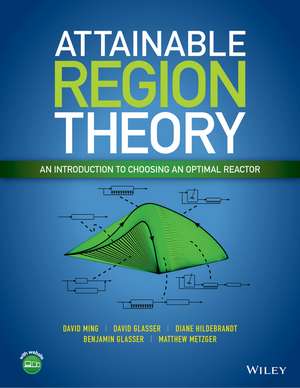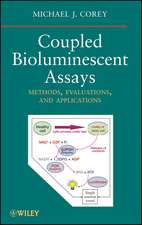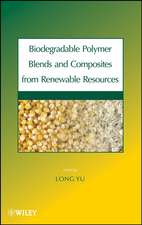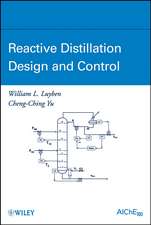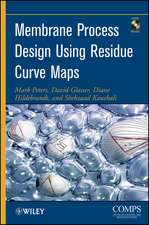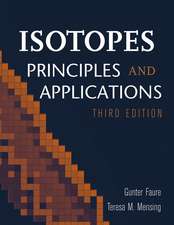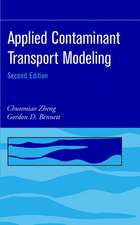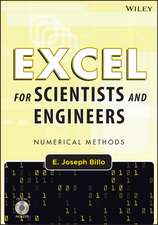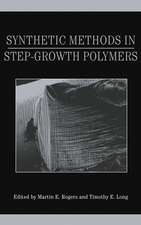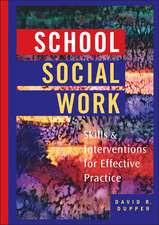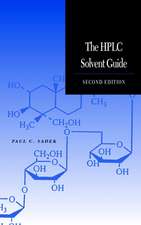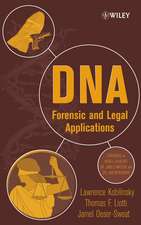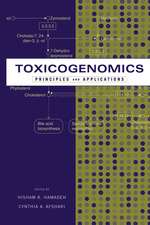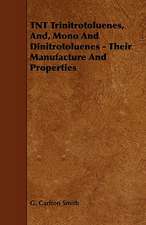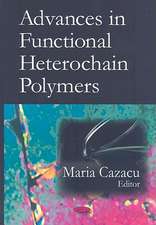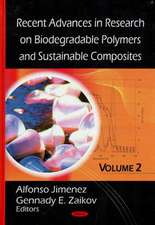Attainable Region Theory – An Introduction to Choosing an Optimal Reactor
Autor D Mingen Limba Engleză Hardback – 21 noi 2016
"The authors of Attainable Region Theory: An Introduction to an Choosing Optimal Reactor make what is a complex subject and decades of research accessible to the target audience in a compelling narrative with numerous examples of real-world applications." TAA Award Judges, February 2019
Learn how to effectively interpret, select and optimize reactors for complex reactive systems, using Attainable Region theory
- Teaches how to effectively interpret, select and optimize reactors for complex reactive systems, using Attainable Region (AR) theory
- Written by co-founders and experienced practitioners of the theory
- Covers both the fundamentals of AR theory for readers new to the field, as we all as advanced AR topics for more advanced practitioners for understanding and improving realistic reactor systems
- Includes over 200 illustrations and 70 worked examples explaining how AR theory can be applied to complex reactor networks, making it ideal for instructors and self-study
- Interactive software tools and examples written for the book help to demonstrate the concepts and encourage exploration of the ideas
Preț: 1224.71 lei
Preț vechi: 1345.84 lei
-9% Nou
Puncte Express: 1837
Preț estimativ în valută:
234.34€ • 244.68$ • 193.95£
234.34€ • 244.68$ • 193.95£
Carte tipărită la comandă
Livrare economică 05-19 aprilie
Preluare comenzi: 021 569.72.76
Specificații
ISBN-13: 9781119157885
ISBN-10: 1119157889
Pagini: 352
Dimensiuni: 220 x 287 x 26 mm
Greutate: 1.13 kg
Editura: Wiley
Locul publicării:Hoboken, United States
ISBN-10: 1119157889
Pagini: 352
Dimensiuni: 220 x 287 x 26 mm
Greutate: 1.13 kg
Editura: Wiley
Locul publicării:Hoboken, United States
Public țintă
Chemical/process engineers interested in chemical reactor design. Undergraduate students in their second, third and fourth years, and lecturers/professors in chemical engineering; Postgraduate/Graduate chemical engineering students and researchers; and Experienced practitioners in industry looking to understand and improve chemical reactor systemsCuprins
Notă biografică
David Ming holds a B.Sc. and Ph.D. in chemical engineering from the University of the Witwatersrand, Johannesburg. His research interests involve using AR theory to optimize chemical reactors, including batch reactors, and AR numerical methods. David Glasser is a Professor of Chemical Engineering and co-director of the Material and Process Synthesis (MaPS) research unit at the University of South Africa (UNISA). He was Head of Department of Chemical Engineering, and Dean of the Faculty of Engineering at University of the Witwatersrand, and is one of the co-founders of AR theory. He holds a B.Sc. in chemical engineering from University of Cape Town, and a Ph.D. in chemical engineering from Imperial College. Diane Hildebrandt is a Professor of Chemical Engineering and co-Director of the MaPS research unit at UNISA. She was the first woman in South Africa to be appointed a full professor of Chemical Engineering when she was the Unilever Professor of Reaction Engineering at the University of the Witwatersrand, and is also a co-developer of AR theory. She holds a B.Sc., M.Sc. and Ph.D. in chemical engineering from University of the Witwatersrand. Her research area is the reduction of CO2 emissions through the design of energy efficient processes. Benjamin Glasser is a Professor of Chemical and Biochemical Engineering at Rutgers University, New Jersey, USA. He holds a B.Sc. and M.Sc. in chemical engineering from University of the Witwatersrand, and a Ph.D. in chemical engineering from Princeton University. His research interests include heat and mass transfer, multiphase reactors and particle technology applied to chemical and pharmaceutical manufacturing. Matthew Metzger is a Senior Scientist at Merck & Co., Inc. He has co-authored over 14 publications, holds a B.S. in chemical engineering from Lafayette University, and a Ph.D. in chemical engineering from Rutgers University.
